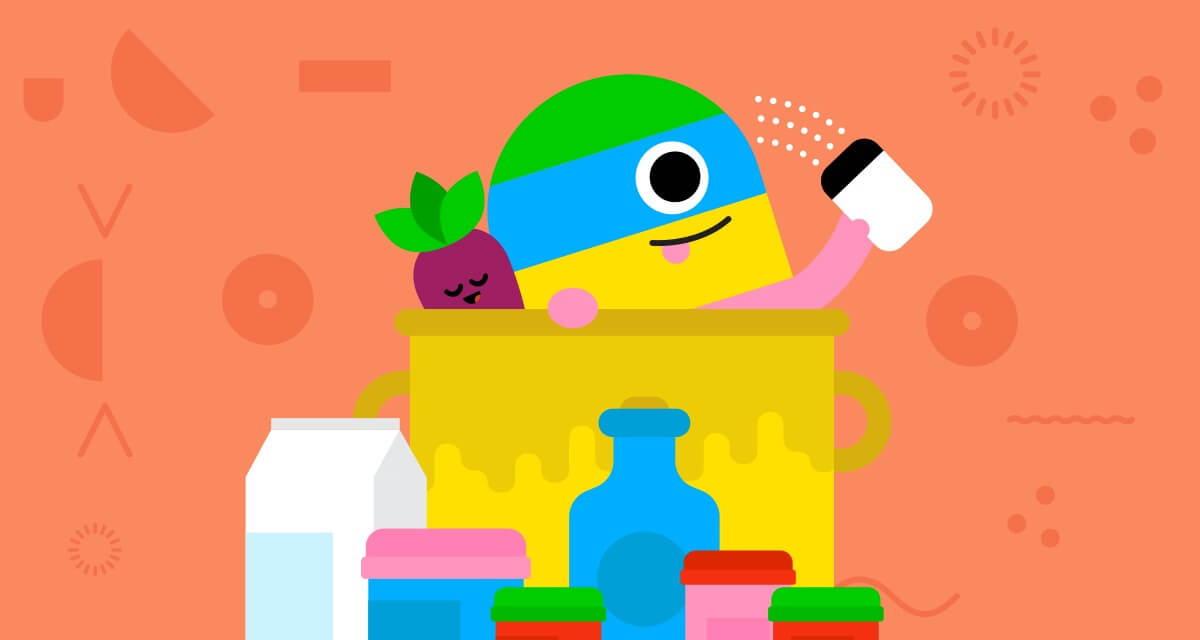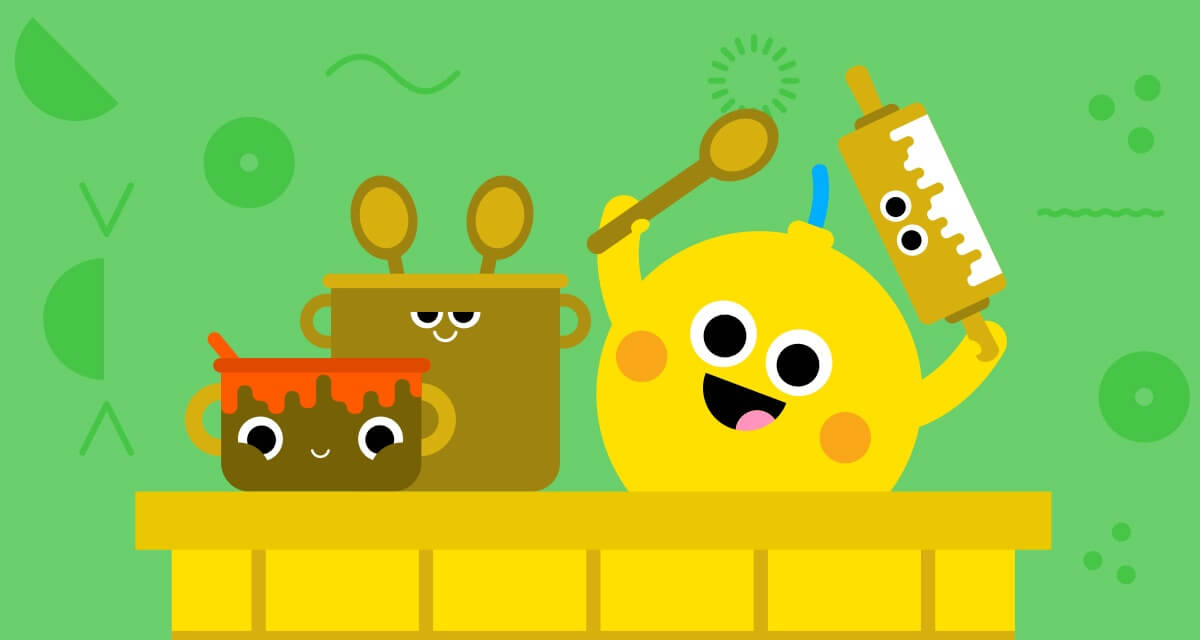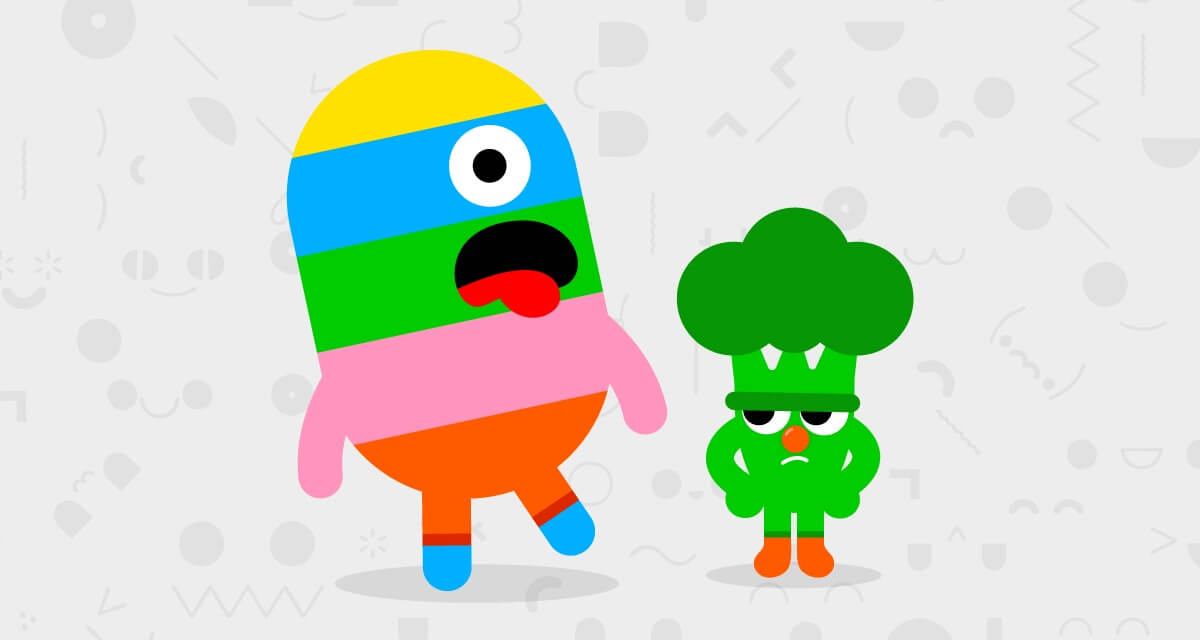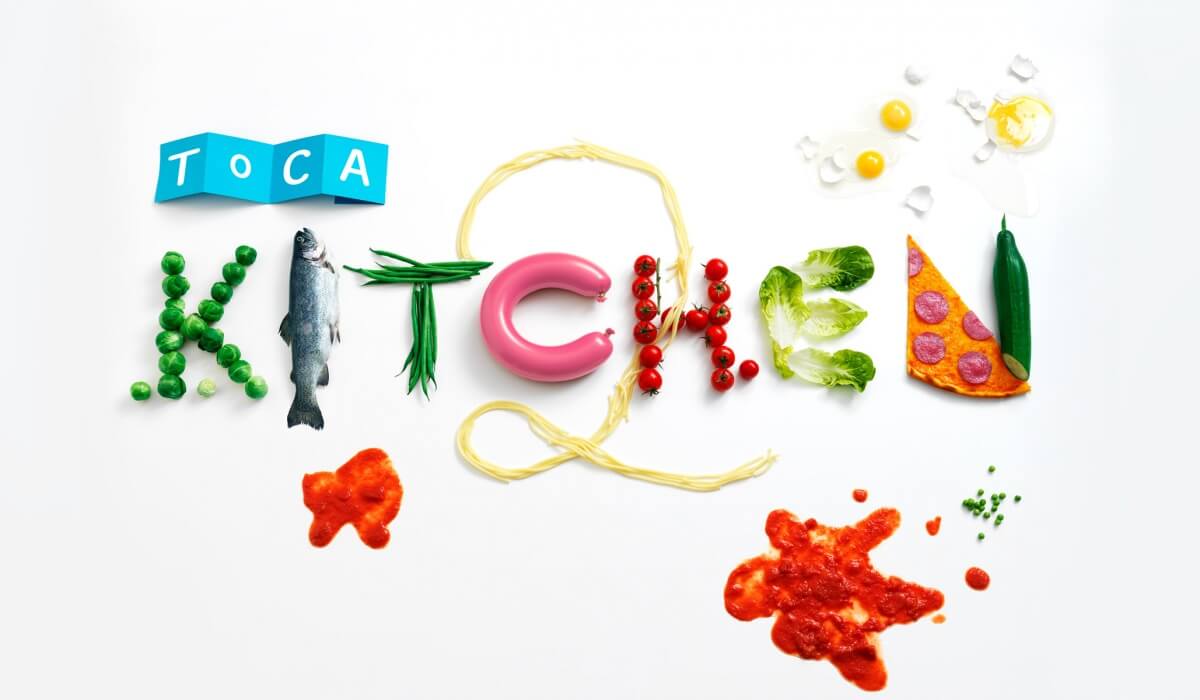The kitchen can be one of the most fun places for kids to play — and they can learn a lot, too!
- By
- Parker Barry
Kitchen play can be fun and empowering for kids, and you don’t have to wait until they’re old enough to be on MasterChef Junior to get them cooking. Once kids can understand basic safety rules, they’re ready to have some fun and grow some food-based independence. Along with cooking skills, kitchen play can help kids learn lessons applicable to academics and life.
Problem solving
Recipes are a lot like puzzles. Every ingredient and process fits into a sequence. Food prep requires kids to think about that sequence, assess how it’s progressing throughout the process and evaluate (taste test!) the end result. If something’s gone wrong (too much flour), troubleshooting (a little more liquid?) can open possibilities and help kids develop flexibility.
- Preschoolers: Sequencing is an important concept at this stage. Integral to problem solving in many academic and social skills — including storytelling, math and practical life tasks — sequencing helps kids know and explain what comes next. Check out this young kid Making Coffee for Dad and notice the look of confidence on his face as he moves from one step to another in an excellent show of sequencing skills.
- Grade schoolers: Now problem-solving practice becomes more independent, as many kids will be able to begin reading and executing recipes by themselves. Challenge more practiced young cooks to cut a recipe in half or make a double batch so they practice concrete math skills like fractions, multiplication and division.
Recipes are a lot like puzzles.
Responsibility and independence
Most kids sense the importance of kitchen safety from the first time they get too close to the oven and you say “Hot!” When kids begin to prepare food in the kitchen, it’s important to impart simple but important rules like washing hands before food prep, keeping sharp things away from fingers and wearing an apron. Review some basic safety guidelines with your kids and assess their current ability to reliably abide by rules before you set them loose. A fun way to help your kids remember to wear an apron is to buy an inexpensive white apron and let them decorate it with fabric paint.
- Preschoolers: The kitchen is a natural place for preschoolers to take steps toward independence in concrete, creative and fun ways. Provide some ingredients — graham crackers, peanut butter, bananas, raisins, trail mix, to name a few — on a kid-level shelf where they can mix and match to create unique DIY snacks whenever they’re hungry. They will feel so proud eating their self-made snack.
- Grade schoolers: Kids now have watched you create in the kitchen for a while and have taken mini-forays into kitchen play with you in the preschool years, so they’re probably ready to put that know-how to use. Set a ground rule that they ask permission and let you know what they’re doing before they start a project in the kitchen. Consider posting kitchen safety reminders for kids to read. Through these basic steps, kids learn the importance of communication and responsibility when it comes to creating anything safely in and out of the kitchen.
The kitchen is a natural place for preschoolers to take steps toward independence in concrete, creative and fun ways.
Body awareness
The kitchen provides kids with ample opportunities for practicing hand-eye coordination and using all five senses. Pouring from a measuring cup into a bowl, cracking an egg, kneading dough to discern its proper consistency and seeing the amount of cinnamon in the palm of your hand that equals a “dash” are just a few of the endless examples of how kitchen play promotes body and sense awareness.
- Preschoolers: Don’t be afraid to give your preschoolers breakable bowls or glasses when you’re working together in the kitchen. Using breakable items helps kids grow confidence — and shows you trust their budding skills. As long as they know the rules if something breaks — don’t touch broken glass, get an adult — using fragile (not heirloom) items can help kids feel the importance of their task. Watch a kid move more carefully carrying a fragile thing and you will feel the sense of responsibility that they’re internalizing.
- Grade schoolers: This can be a fun time to encourage kids to try some real precision. Kids this age have tons of fun decorating cupcakes with piping tips, using cookie cutters and trying their hand at many forms of food art, which can refine hand-eye coordination and help them to slow way down — a much-needed skill for today’s rushed schoolkids.
Pouring from a measuring cup into a bowl and cracking an egg are examples of how kitchen play promotes body and sense awareness.
Social skills
Kids can practice an astonishing amount of social skills through food. Collaborating on recipes, preparing and serving meals for others to enjoy, and sitting down to food with pleasant conversation and good table manners all involve learning and practicing skills central to a happy social life.
- Preschoolers: Practice manners at a self-created tea party, where kids learn the fine art of saying please and thank you and serving others before themselves. Also, there’s no better time than early to start the habit of cleaning after kitchen fun. Make sure your preschooler helps clean every time they play with you in the kitchen. They can learn to clean up spills with a sponge, wash dishes, sweep or mop floors (with kid-size brooms and mops), and return ingredients and tools to their proper spots. Teamwork and orderliness will make everything better for everyone who works and plays in the kitchen.
- Grade schoolers: For your next holiday gathering, give grade school-age kids the option to make an appetizer, dessert or side — whatever they want. Encourage them to look for a recipe in a book or online that piques their interest, make a grocery list, go shopping together, make their creation solo and serve it to those gathered.
Kids can practice an astonishing amount of social skills through food.
Creativity
Kids can think outside the box and use kitchen play to make things for reasons other than eating. Help your kid find recipes for homemade play dough or play clay, holiday ornaments, dog treats, bird food and more.
- Preschoolers: Make a batch of homemade play dough with your kid and they can prepare pretend food nearby with some safe, real kitchen tools during times when you are quickly trying to get food on the table and don’t have the extra time to involve them in dinnertime prep.
- Grade schoolers: Encourage kids to make their own recipes and in the process practice good old-fashioned kitchen creativity, experimentation and trial and error. It may take a few tries before they make a new recipe worth repeating, but they will learn a lot in the process.
Encourage kids to make their own recipes and in the process practice good old-fashioned kitchen creativity, experimentation and trial and error.
Who knows? With all of this creative and productive playtime in the kitchen, maybe your kid will invent the next great family cookie recipe, be the next MasterChef Junior … or at least make you a really good cup of coffee in the morning.






